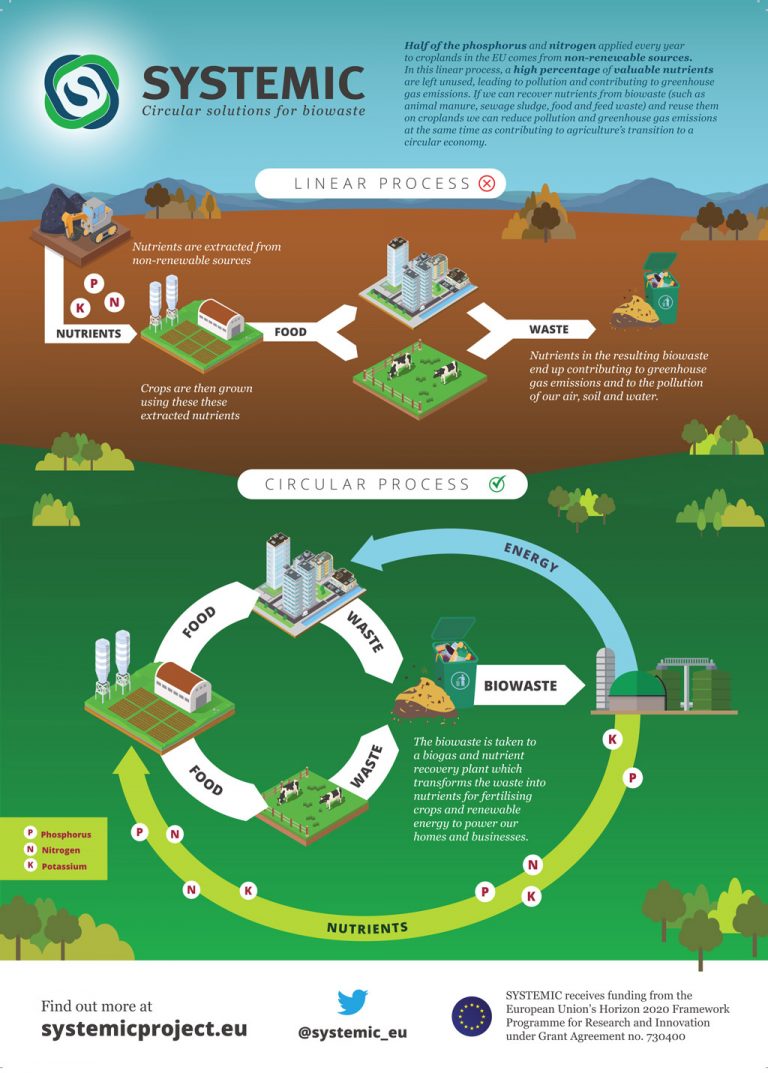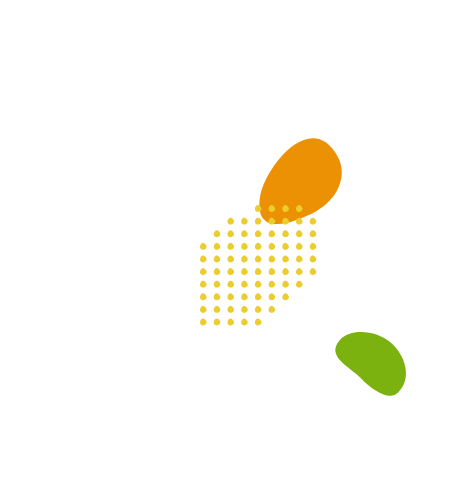News and pubblications
Case Studies
SYSTEMIC
Systemic large-scale eco-innovation to advance circular economy and mineral recovery from organic waste in Europe
Duration of the project: 36 months
The production of nitrogen (N) and phosphorus (P) mineral fertilisers currently requires the use of non-renewable resources (finite P rock) and the use of natural gas (to produce N fertilisers from N2 in the air). On the other hand significant amounts of N and P are available in waste streams which can be recovered and reused. Paradoxically, the excessive production and use of N and P biomass streams with inefficient N-P ratios also causes severe environmental problems, especially in regions with intensive livestock husbandry and high application rates causing leaching of nutrients to groundwater in drinking water supply areas and sophistication of water bodies.
In recent years, multiple nutrient recovery and reuse (NRR) technologies have been developed and tested in pilot facilities and proven to be ready for implementation at large scale. SYSTEMIC has selected the most promising NRR technologies and aspires to implement these on five state-of-the-art anaerobic digestion demonstration plants in order to demonstrate that the combination of anaerobic digestion and nutrient recovery forms a prerequisite for the valorisation of bio waste in an economically viable manner.

In particular, the Ricicla Group will experiment with the application of fertilizers and soil improvers produced by anaerobic digestion, starting from waste, to agricultural land. The experiments aim on the one hand to determine whether these products can completely or partially replace those of synthetic origin, on the other hand to verify that the associated environmental impacts are sustainable. We will then proceed to follow maize crops fertilized with different products, analysing in details the soil at regular intervals. Greenhouse gas and odorous emissions will also be assessed. Finally, the maize production obtained through the different strategies will be compared.

